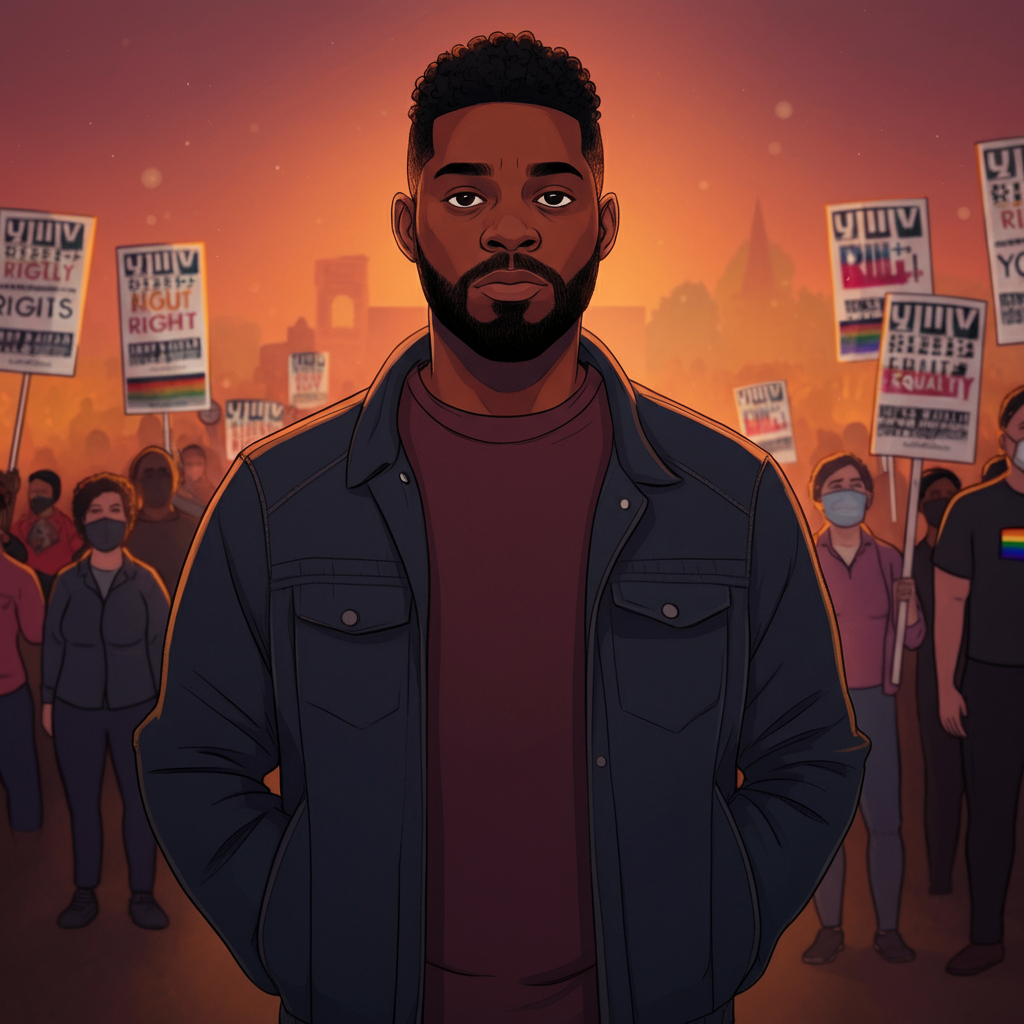Hatfield, PA, a small yet historically vibrant borough in Montgomery County, recently found itself at the center of conversations about social justice and equality. Jamaal King, a Black gay man and a resident of Hatfield, faced an unfortunate episode of discrimination. This incident not only highlighted ongoing struggles against racism and homophobia but also reignited a broader dialogue about the need for inclusivity jamaal king gay hatfield pa.
This blog dives into Jamaal King’s story, examines Hatfield’s history with LGBTQ+ rights and racial equality, and explores the community’s response to the incident. You’ll also learn about the steps being taken to address discrimination locally and how residents and advocates are working to build a more inclusive future.
Hatfield’s History With LGBTQ+ Rights and Racial Equality
Hatfield, like many towns across the United States, has a mixed history with diversity and inclusion. Historically, communities of color and LGBTQ+ individuals have faced systemic inequalities and marginalization in smaller towns, and Hatfield has been no exception.
However, in recent years, the borough has seen increased efforts to promote equality through grassroots movements, public education campaigns, and local organizations working to bridge the gaps in understanding. While these efforts have begun to make a difference, incidents like the one Jamaal King experienced show that there is still considerable work to be done jamaal king gay hatfield pa.
Jamaal King’s Experience of Discrimination
Jamaal King, a proud Black gay man and an active member of the Hatfield community, has long advocated for equality and understanding. Unfortunately, King recently became the target of discrimination that illustrated the challenges that marginalized groups continue to face.
While details of the specific incident remain protected due to ongoing legal proceedings, King has publicly shared the emotional toll this experience has taken on him. The discrimination not only impacted him personally but also disrupted his professional life, as prejudice infiltrated areas where inclusivity should have been a given.
King said in a local interview, “It wasn’t just about me being Black, or just about me being gay—it was the intersection of both, and that made the situation even worse.” His story has served as a poignant reminder of how racial and homophobic biases often intersect.
Community Response: Taking a Stand for Jamaal
The discrimination Jamaal faced galvanized many residents of Hatfield to rally in his support. Local social justice advocates have organized marches, town hall meetings, and solidarity events to bring awareness to the intersecting challenges faced by LGBTQ+ individuals and people of color in the borough.
One prominent supporter, Rachel Simmons, a Hatfield resident and founder of the advocacy group “Unity Hatfield,” said, “This is a wake-up call for our community. What happened to Jamaal serves as a reminder that none of us are truly safe from discrimination until equality is an everyday reality for everyone.”
Additionally, social media, local newspapers, and community forums have all played a crucial role in amplifying Jamaal’s story. These platforms have helped spark meaningful conversations and connect residents to resources and initiatives aimed at fostering inclusivity.
Legal and Policy Implications
Jamaal’s case has not only sparked activism but has also put a spotlight on the current laws and policies addressing discrimination in Hatfield. While Pennsylvania prohibits discrimination based on factors like race and sexual orientation in certain contexts, activists argue that the protections in place are not always adequately enforced.
Some proposed steps include additional training for law enforcement, education campaigns targeting schools and workplaces, and the appointment of a diversity and inclusion officer for the borough.
Voices of Advocacy in Hatfield
Jamaal King’s story has inspired many Hatfield residents to speak out about the importance of inclusivity and equality. Martha Nguyen, a lifelong resident, shared her perspective in a public forum, stating, “Our town thrives when we celebrate diversity. It’s when we refuse to change or confront our biases that we lose our sense of community.”
Similarly, Marcus Bell, a local teacher and activist, emphasized the need for early education to combat prejudice. “If we teach our kids about mutual respect, empathy, and the value of different perspectives from a young age, incidents like the one Jamaal faced could become a thing of the past,” Bell said during a recent school board meeting.
These testimonies highlight a shared desire among Hatfield’s residents to cultivate a more accepting environment for all and to prevent future acts of discrimination.
How You Can Support Inclusivity in Hatfield
Though the challenges are real, there are concrete ways you can help make Hatfield a more inclusive community and take a stand against discrimination:
- Support Local Advocacy Groups: Organizations like “Unity Hatfield” are working tirelessly to promote equality in the community. Volunteering, donating, or attending their events can make a big difference.
- Attend Town Hall Meetings: Participation in local government meetings can help ensure that meaningful conversations about diversity are held, and that community leaders take action.
- Educate Yourself and Others: Understanding the experiences of marginalized groups is essential to promoting change. Share stories like Jamaal King’s and encourage open dialogues about racism and homophobia.
- Push for Policy Reform: Advocate for stronger anti-discrimination policies and hold local leaders accountable for their enforcement.
Building an Inclusive Future Together
The story of Jamaal King is both heartbreaking and eye-opening, but it has also inspired impactful activism in Hatfield, PA. By shedding light on the intersectionality of his challenges and the community’s response, we witness how adversity can become the starting point for meaningful change.
Hatfield still has a long road ahead in its pursuit of equality and diversity, but thanks to the courage of people like Jamaal, the critical conversations have begun.

